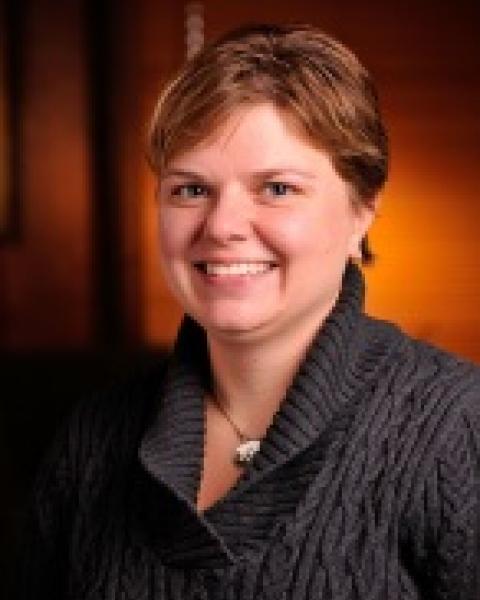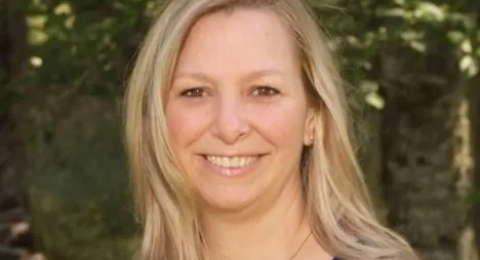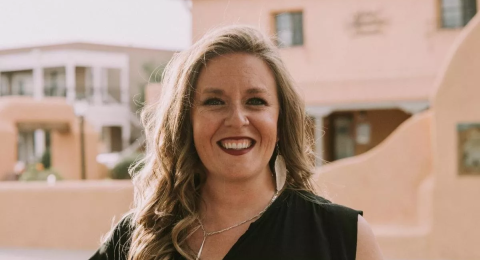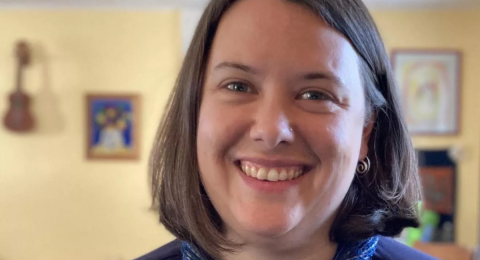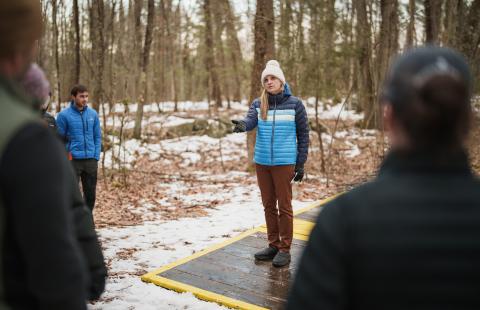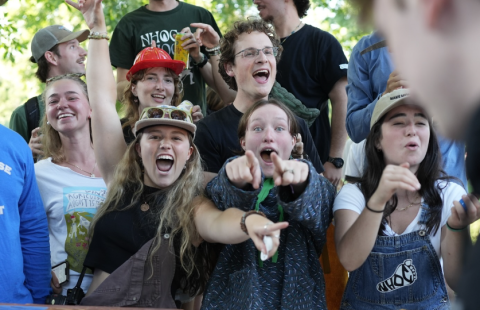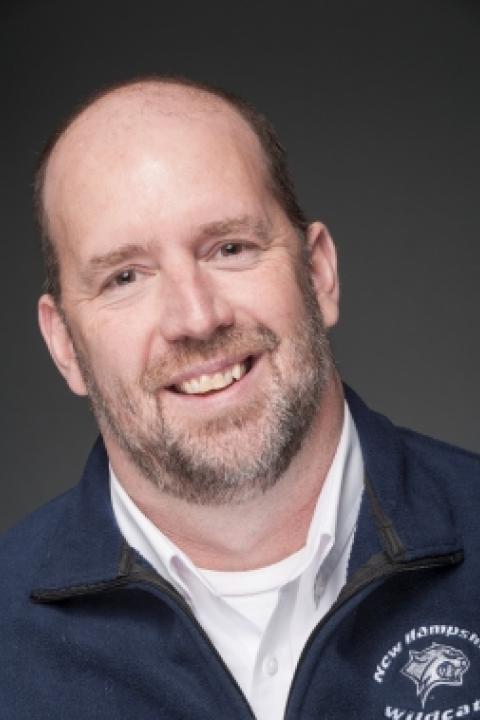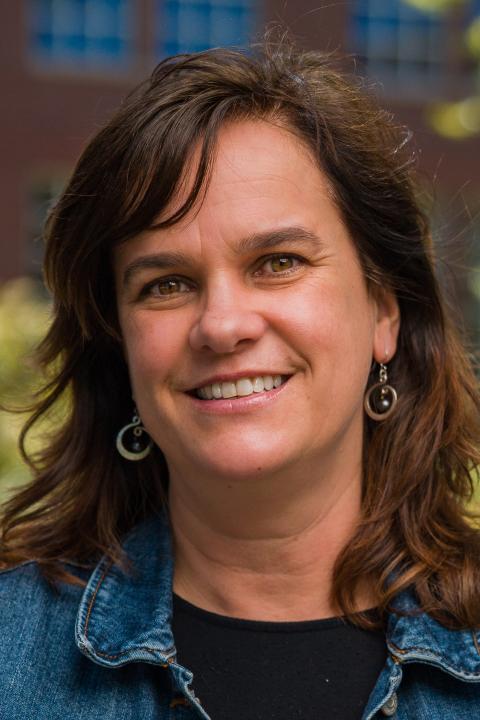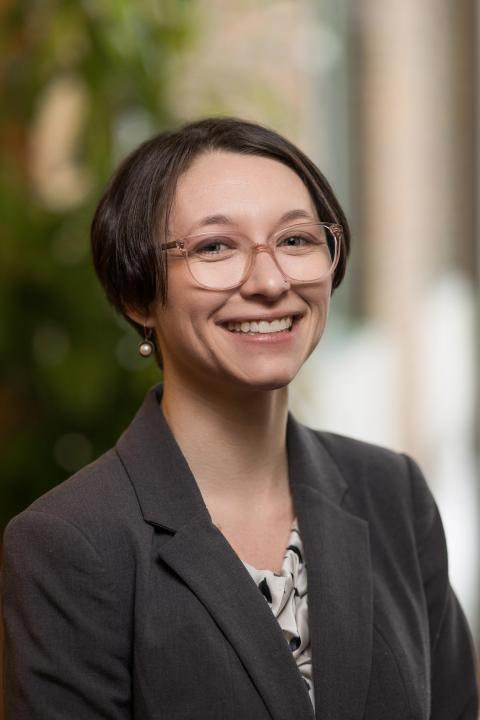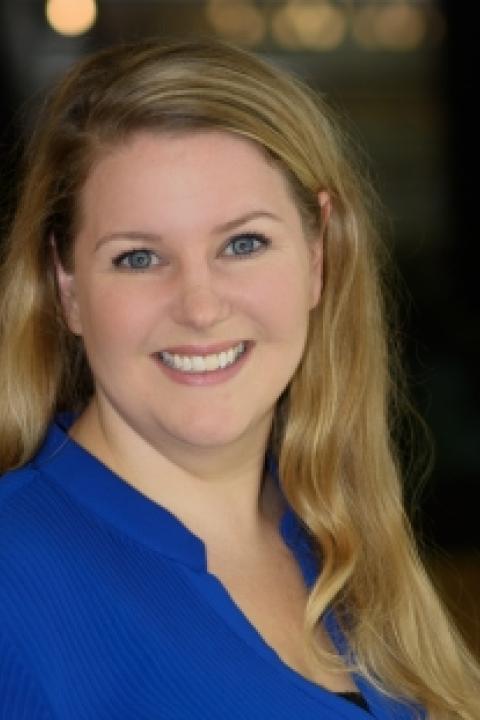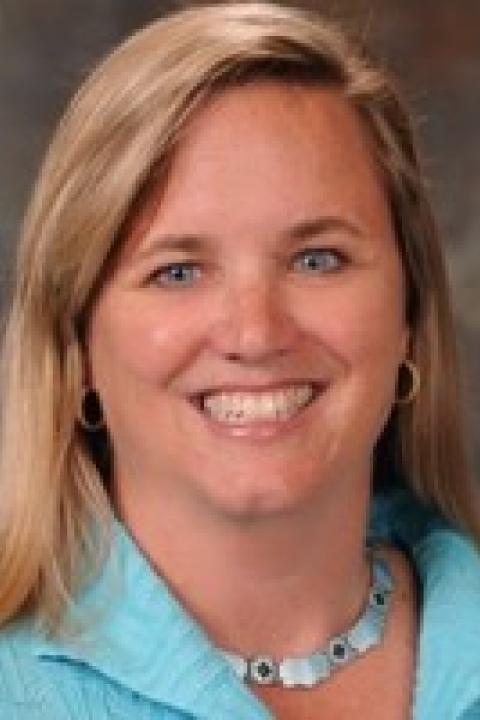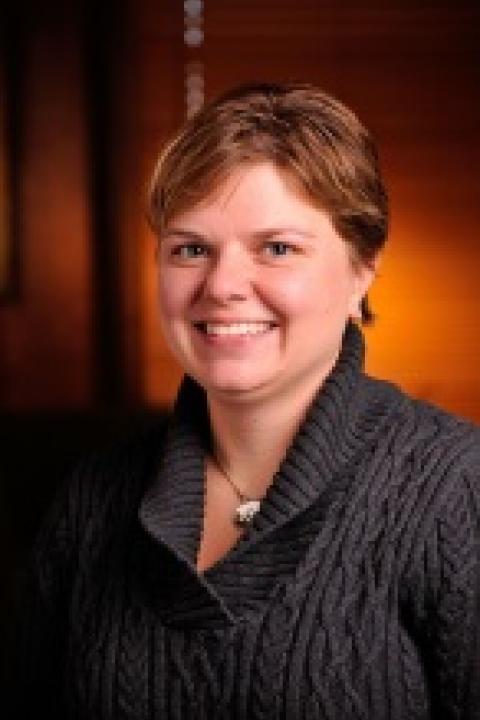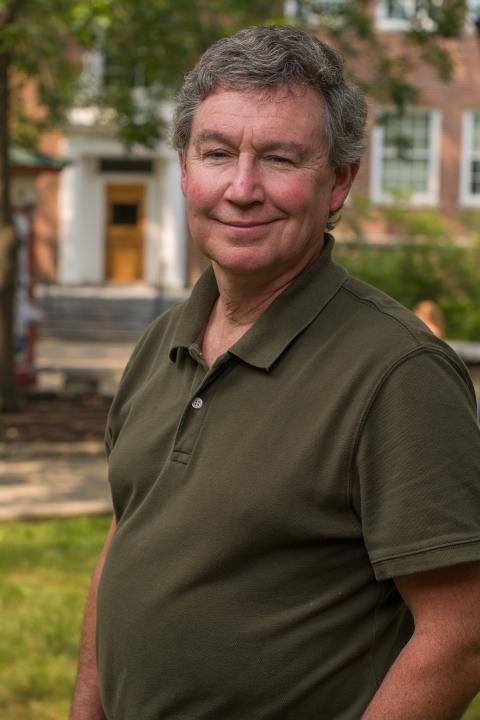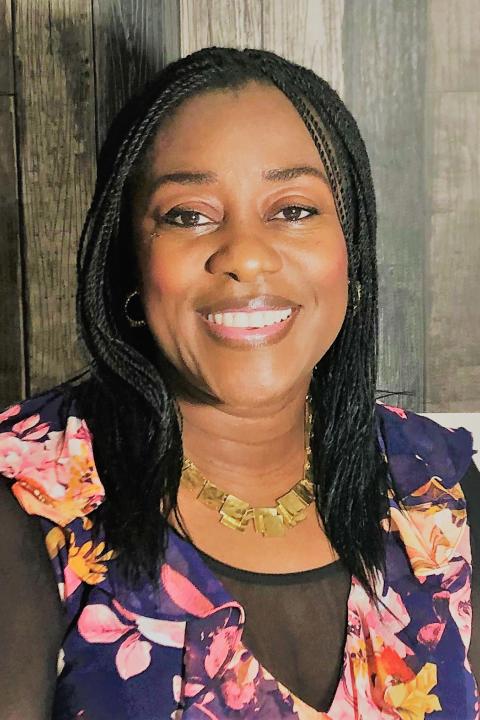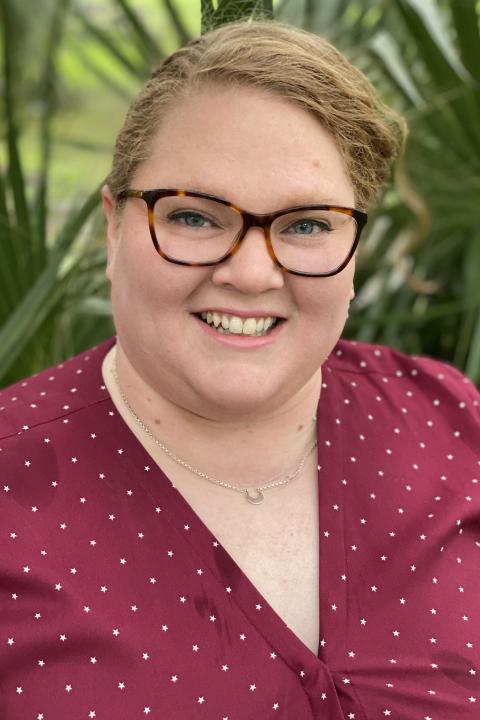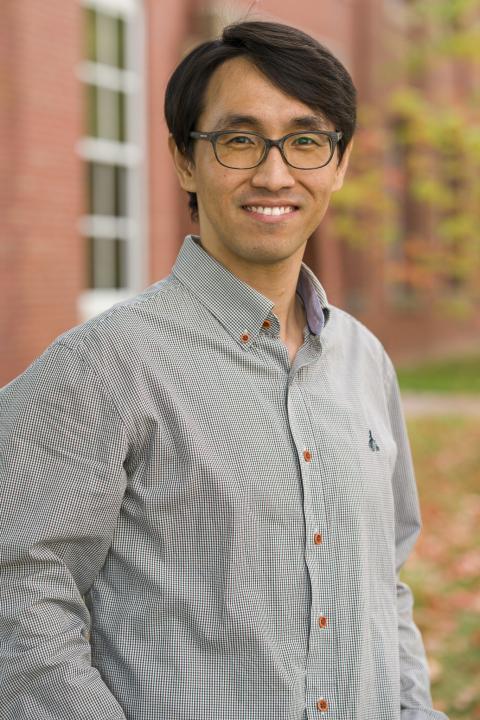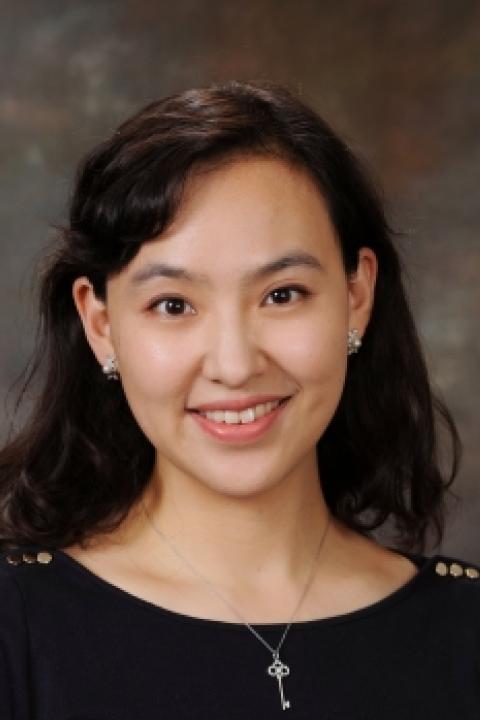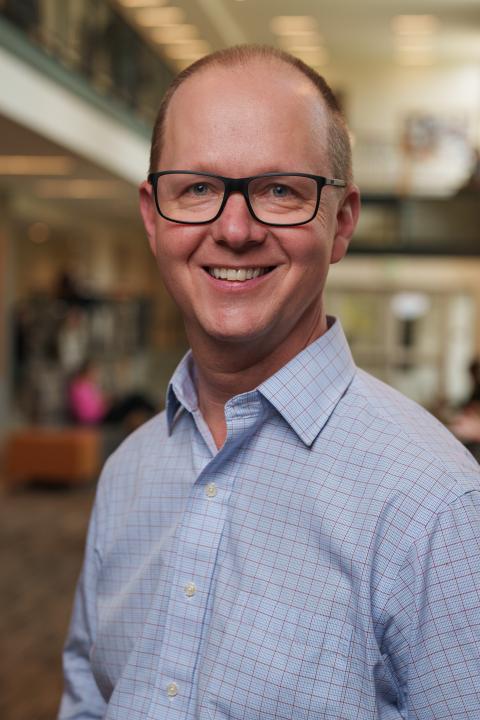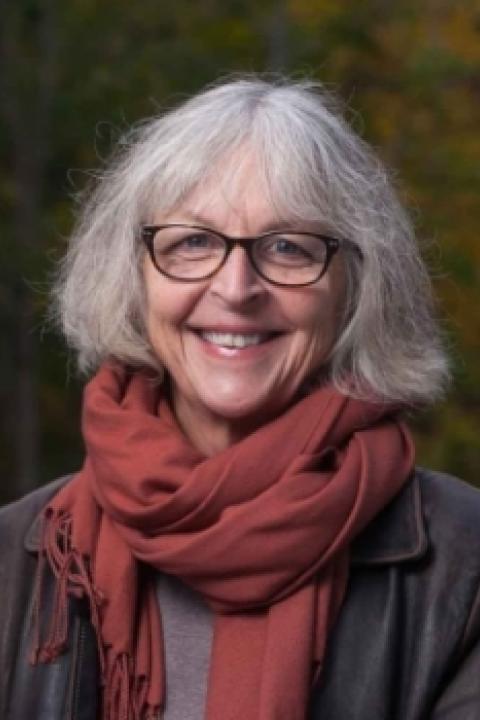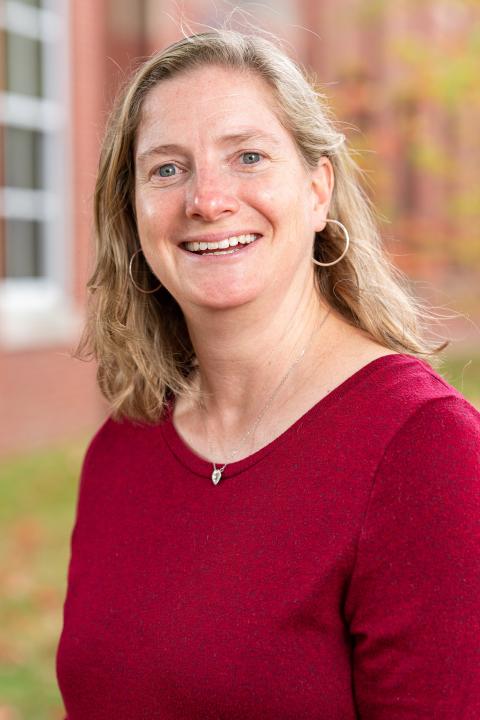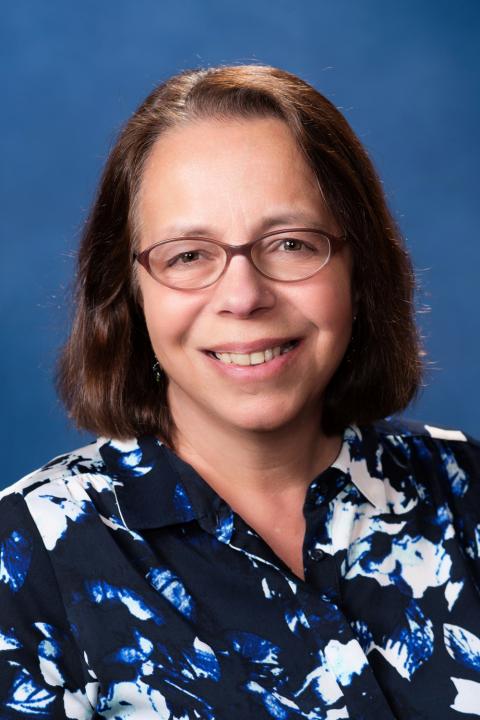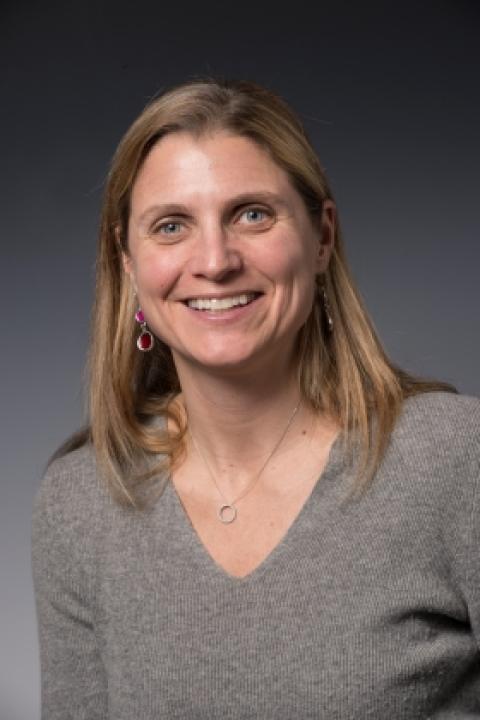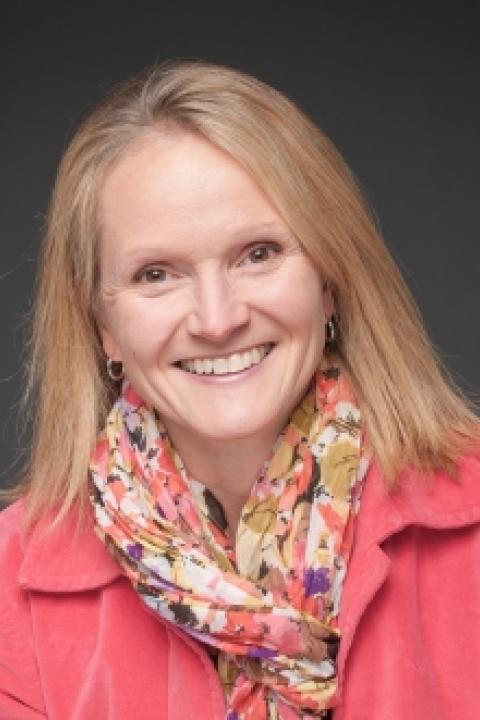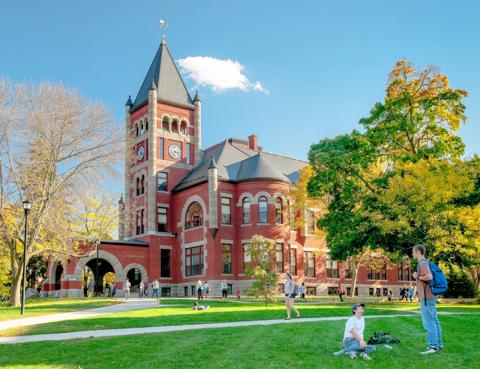WHY GET A MASTER’S DEGREE IN SOCIAL WORK?
Professional social workers make a difference in people’s lives, communities and society. An M.S.W. is a professional degree that prepares graduates to work in fields such as healthcare, education, substance abuse, child welfare, employee assistance programs, policy and advocacy, and other human services and social welfare related areas. Additionally, an M.S.W. is the first step toward becoming a licensed clinical social worker (LCSW).
WHY CHOOSE UNH’S MASTER OF SOCIAL WORK PROGRAM?
At UNH, you’ll earn a Council on Social Work Education (CSWE)-accredited M.S.W. from a top-tier research university. You’ll learn from full-time faculty who are passionate about social justice and are experts in their fields of practice. With full-time, part-time and online options you can earn your degree in the format best suited to you, and you’ll have the opportunity to specialize in areas including disabilities; health and mental health; addictions and substance abuse; and children, youth and families. You’ll also gain hands-on experience while making a difference in your community through local field internships.
POTENTIAL CAREERS
- Child welfare case worker
- Community health worker
- Community outreach organizer
- Juvenile/adult criminal justice social worker
- Medical social worker
- Mental health social worker
- Public health administrator
- Public policy researcher/analyst
- School social worker
- Substance use disorder counselor
From the CHHS Blog
Curriculum & Requirements
The University of New Hampshire's M.S.W. program provides a quality educational experience that prepares graduates for Advanced Generalist practice consistent with the purposes of the social work profession. It concentrates on strengths and empowerment models that encourage individuals and families, and communities and organizations to realize their full potential.
Fields of Practice
MSW students will be able to select three electives in one or more of the following:
- Health and mental health;
- Addictions and substance abuse;
- Children, youth, and families,
- Disabilities; or a self-designed field of practice.
Program Options
The Durham Campus Program is our traditional model with classes held on campus. It takes two years to complete the full time program, with part time course of study of three and four years. Required first year courses are scheduled Monday-Wednesday leaving Thursdays and Fridays open for first year internships. Second year courses are scheduled Wednesdays and Thursdays leaving Monday, Tuesday, and Friday for internships. The Durham program admits once a year in the fall.
The M.S.W Online Program allows students to earn their Master of Social Work degree online in 28 months. M.S.W online students are required to complete two internships at a program or agency in their local community and work with Social Work Department internship office to identify acceptable sites. Internship seminar and Practice classes will have weekly synchronous online classes help on Monday or Wednesday evenings. The online program admits three times a year (fall, spring, summer). No campus visits are required at any time.
Advanced Standing is an option for eligible students who have graduated from an accredited B.S.W. program within five years. This option is available in Durham or online. Admission to this program is every summer for Durham and every fall for online.
Durham Two Year Program
| First Year | ||
|---|---|---|
| Fall | Credits | |
| SW 820 | Social Welfare Policy I | 3 |
| SW 830 | Social Work Practice I | 3 |
| SW 840 | Implications of Race, Culture, and Oppression for Social Work Practice | 3 |
| SW 850 | Human Behavior and the Social Environment I | 3 |
| SW 880 | Internship I | 3 |
| Credits | 15 | |
| Spring | ||
| SW 831 | Social Work Practice II: Practice in Small Groups and Community Organizations | 3 |
| SW 851 | Human Behavior and the Social Environment II | 3 |
| SW 860 | Research Methods in Social Work | 3 |
| SW 881 | Internship II | 3 |
| SW 926 | Social Welfare Policy II | 3 |
| Credits | 15 | |
| Second Year | ||
| Fall | ||
| SW 930 | Advanced General Practice III: Clinical Assessment and Intervention | 3 |
| SW 952 | Human Behavior and the Social Environment III | 3 |
| SW 962 | Data Analysis and Statistics | 3 |
| SW 982 | Internship III | 4 |
| Elective | 3 | |
| Credits | 16 | |
| Spring | ||
| SW 931 | Advanced Generalist Practice IV: Community and Administrative Practice | 3 |
| SW 965 | Program and Practice Evaluation | 3 |
| SW 983 | Internship IV | 4 |
| Elective | 3 | |
| Elective | 3 | |
| Credits | 16 | |
| Total Credits | 62 | |
Please refer to our MSW Handbook listed on our website for 3 year and 4 year Durham degree plan options.
Online MSW Degree Plan - Example below is Fall cohort course of study
| First Year | ||
|---|---|---|
| Fall | Credits | |
Term 1 | ||
| SW 820 | Social Welfare Policy I | 3 |
| SW 850 | Human Behavior and the Social Environment I | 3 |
Term 2 | ||
| SW 840 | Implications of Race, Culture, and Oppression for Social Work Practice | 3 |
| SW 860 | Research Methods in Social Work | 3 |
| Credits | 12 | |
| Spring | ||
Term 3 | ||
| SW 851 | Human Behavior and the Social Environment II | 3 |
| SW 926 | Social Welfare Policy II | 3 |
Term 4 | ||
| SW 830 | Social Work Practice I | 3 |
| SW 880 | Internship I 1 | 3 |
| Credits | 12 | |
| Summer | ||
| Elective | 3 | |
| Continuation of SW 880: Internship 1 | ||
| Credits | 3 | |
| Second Year | ||
| Fall | ||
Term 1 | ||
| SW 831 | Social Work Practice II: Practice in Small Groups and Community Organizations | 3 |
| SW 881 | Internship II 2 | 3 |
Term 2 | ||
| SW 952 | Human Behavior and the Social Environment III | 3 |
| Continuation of SW 881: Internship 2 | ||
| Credits | 9 | |
| Spring | ||
Term 3 | ||
| Elective | 3 | |
| SW 962 | Data Analysis and Statistics | 3 |
Term 4 | ||
| SW 930 | Advanced General Practice III: Clinical Assessment and Intervention | 3 |
| SW 982 | Internship III 3 | 4 |
| Credits | 13 | |
| Summer | ||
| SW 965 | Program and Practice Evaluation | 3 |
| Continuation of SW 982: Internship 3 | ||
| Credits | 3 | |
| Third Year | ||
| Fall | ||
Term 1 | ||
| SW 931 | Advanced Generalist Practice IV: Community and Administrative Practice | 3 |
| SW 983 | Internship IV 4 | 4 |
Term 2 | ||
| Elective | 3 | |
| Continuation of SW 983: Internship 4 | ||
| Credits | 10 | |
| Total Credits | 62 | |
- 1
Goes through Terms 4 and 5
- 2
Goes through Terms 1 and 2
- 3
Going through Terms 4 and 5
- 4
Goes through Terms 1 and 2
M.S.W. Degree Requirements
An M.S.W. candidate must complete 62 credit hours of 800- or 900-level courses including two, two-semester internships, comprising a total of 1,240 hours. Grades below the B level in a graded course or a "fail" in a credit/fail course are considered failing grades for the purposes of determining academic standing. Repeating a course does not remove the original failing grade from the record. Graduate students receiving failing grades in 9 or more credits, received either in three courses or in any combination of courses taken twice, will be dismissed from the M.S.W. program.
Although a significant portion of the curriculum is required, students will be able to complete three elective courses. At least one of these must be taken from among Department of Social Work course offerings.
Core MSW Program Advanced Generalist Courses
| Code | Title | Credits |
|---|---|---|
| Core courses | ||
| SW 820 | Social Welfare Policy I | 3 |
| SW 830 | Social Work Practice I | 3 |
| SW 831 | Social Work Practice II: Practice in Small Groups and Community Organizations | 3 |
| SW 840 | Implications of Race, Culture, and Oppression for Social Work Practice | 3 |
| SW 850 | Human Behavior and the Social Environment I (HBSE I) | 3 |
| SW 851 | Human Behavior and the Social Environment II (HBSE II) | 3 |
| SW 860 | Research Methods in Social Work | 3 |
| SW 880 | Internship I 1 | 3 |
| SW 881 | Internship II 2 | 3 |
| SW 926 | Social Welfare Policy II | 3 |
| SW 930 | Advanced General Practice III: Clinical Assessment and Intervention | 3 |
| SW 931 | Advanced Generalist Practice IV: Community and Administrative Practice | 3 |
| SW 952 | Human Behavior and the Social Environment III | 3 |
| SW 962 | Data Analysis and Statistics | 3 |
| SW 965 | Program and Practice Evaluation | 3 |
| SW 982 | Internship III 3 | 4 |
| SW 983 | Internship IV 4 | 4 |
| Electives | ||
| Select three 3-credit elective courses of social work (other graduate programs with permission): | 9 | |
SW 802 | Aging and Society | |
SW 803 | Social Work and Spirituality | |
SW 804 | Adolescents with Emotional and Behavioral Challenges | |
SW 805 | Child and Adolescent Risks and Resiliency: Program, Policy and Practice | |
SW 807 | Child Maltreatment | |
SW 808 | Mental Health Aspects of Intellectual & Developmental Disabilities | |
SW 809 | First Responders | |
SW 810 | SW and the Digital Age | |
SW 812 | Understanding Developmental Disabilities | |
SW 813 | School Social Work | |
SW 815 | Affirming Practice with Lesbian, Gay, Bisexual, Transgender, Queer+ People | |
SW 817 | Understanding Suicide | |
SW 818 | SW & Creative Arts | |
SW 957 | Fund Development and Grantwriting | |
SW 865 | Adventure Therapy: Facilitation and Processing of the Experience | |
SW 870 | Intimate Partner Violence | |
SW 897 | Special Topics in Social Work and Social Welfare | |
SW 974 | Social Work Supervision | |
SW 975 | Theory and Practice of Family Therapy | |
SW 979 | Social Work and the Law | |
| Total Credits | 62 | |
- 1
Seminar and concurrent two-day/week internship/academic year
- 2
Seminar and two-day/week internship continued from SW 880 Internship I
- 3
Seminar and concurrent three-day/week internship/academic year
- 4
Seminar and three-day/week internship continued from SW 982 Internship III
Accelerated Master's Overview
Accelerated Master’s programs offer qualified University of New Hampshire undergraduate students the opportunity to begin graduate coursework in select graduate programs while completing a bachelor’s degree. Accelerated master's programs are designed to provide students with an efficient and cost-effective pathway to earn both a bachelor's and master's degree or graduate certificate, enhancing career opportunities and long-term earning potential.
Accelerated Master's Highlights
- Begin studying advanced topics while an undergraduate student with the opportunity to complete a master’s degree or graduate certificate early.
- Master’s degree program students: Earn up to 12* graduate (800-level) course credits while completing a bachelor’s degree. This coursework will count as dual-credit toward both the bachelor’s and master’s degrees.
- Graduate certificate program students: Earn up to 8* graduate (800-level) course credits while completing a bachelor’s degree. This coursework will count as dual-credit toward both the bachelor’s degree and the graduate certificate.
- Students complete the bachelor’s degree, and then officially matriculate into the master’s or graduate certificate program to complete the remaining required graduate-level coursework.
*Some exceptions apply.
Accelerated Master's Admission Requirements
- A minimum 3.2 cumulative GPA is required.*
- A minimum of 90 undergraduate credits must be completed prior to enrolling in graduate (800-level) courses.
- Streamlined Graduate School Application (two letters of recommendation; most standardized tests and application fee are waived).*
*Some exceptions apply.
Accelerated Master's Requirements
- Students must attend a mandatory orientation session.
- Students must submit a special registration form each semester for dual-credit courses and note any DegreeWorks exceptions.
- Students may defer graduate matriculation for up to one year after earning their bachelor’s degree in most programs.
- See the Accelerated Master’s Catalog Policy and Accelerated Master’s Website for additional information and a list of programs. Note that some programs have additional requirements (e.g. higher-grade expectations) compared to the general policy.
Social Work (M.S.W.) Accelerated Option
This graduate degree program is approved to be taken on an accelerated basis in articulation with the following undergraduate program(s):
| Code | Title | Credits |
|---|---|---|
| Social Work (B.S.) | ||
| Students select from the following approved 800-level courses that can be completed in the undergraduate senior year for dual credit: | ||
| SW 802 | Aging and Society | 3 |
| SW 804 | Adolescents with Emotional and Behavioral Challenges | 3 |
| SW 805 | Child and Adolescent Risks and Resiliency: Program, Policy and Practice | 3 |
| SW 807 | Child Maltreatment | 3 |
| SW 808 | Mental Health Aspects of Intellectual & Developmental Disabilities | 3 |
| SW 810 | SW and the Digital Age | 3 |
| SW 812 | Understanding Developmental Disabilities | 3 |
| SW 815 | Affirming Practice with Lesbian, Gay, Bisexual, Transgender, Queer+ People | 3 |
| SW 816 | Addiction Assessment | 3 |
| SW 817 | Understanding Suicide | 3 |
| SW 818 | SW & Creative Arts | 3 |
| SW 819 | Addiction Treatment | 3 |
| SW 821 | International Social Work | 3 |
| SW 840 | Implications of Race, Culture, and Oppression for Social Work Practice | 3 |
| SW 865 | Adventure Therapy: Facilitation and Processing of the Experience | 3 |
| SW 871 | Trauma-Informed Practice in School Settings | 3 |
| SW 885 | Study Abroad | 3 |
Additional Information
The Accelerated Masters (also referred to as early entry) program allows you to take graduate credit course senior year and have greater access to MSW elective options. It also provides students with the option of completing graduate certificates, such as the Child Welfare or Substance Use Disorder Graduate Certificates.
Program Learning Outcomes
- Student demonstrates ethical and professional behavior.
- Student engages diversity and difference in practice.
- Student advances human rights and social, economic and environmental justice.
- Engage in practice informed research and research-informed practice.
- Engages in policy practice.
- Engage with individuals, families, groups, organizations, and communities.
- Assess individuals, families, groups, organizations, and communities.
- Intervenes with individuals, families, groups, organizations, and communities.
- Evaluates practice with individuals, families, groups, organizations, and communities.
Deadlines
Applications must be completed by the following deadlines in order to be reviewed for admission:
- Fall: April 15
- Spring: N/A
- Summer: N/A
- Special: Note only current UNH BSW students can apply as accelerated masters
Application fee: $65
Campus: Durham
New England Regional: No
Accelerated Masters: Yes (for more details see the accelerated masters information page)
New Hampshire Residents
Students claiming in-state residency must also submit a Proof of Residence Form. This form is not required to complete your application, but you will need to submit it after you are offered admission, or you will not be able to register for classes.
Transcripts
If you attended UNH or Granite State College (GSC) after September 1, 1991, and have indicated so on your online application, we will retrieve your transcript internally; this includes UNH-Durham, UNH-Manchester, UNH Non-Degree work and GSC.
If you did not attend UNH, or attended prior to September 1, 1991, then you must upload a copy (PDF) of your transcript in the application form. International transcripts must be translated into English.
If admitted, you must then request an official transcript be sent directly to our office from the Registrar's Office of each college/university attended. We accept transcripts both electronically and in hard copy:
- Electronic Transcripts: Please have your institution send the transcript directly to grad.school@unh.edu. Please note that we can only accept copies sent directly from the institution.
- Paper Transcripts: Please send hard copies of transcripts to: UNH Graduate School, Thompson Hall- 105 Main Street, Durham, NH 03824. You may request transcripts be sent to us directly from the institution or you may send them yourself as long as they remain sealed in the original university envelope.
Transcripts from all previous post-secondary institutions must be submitted and applicants must disclose any previous academic or disciplinary sanctions that resulted in their temporary or permanent separation from a previous post-secondary institution. If it is found that previous academic or disciplinary separations were not disclosed, applicants may face denial and admitted students may face dismissal from their academic program.
Letters of recommendation: 3 required
Recommendation letters submitted by relatives or friends, as well as letters older than one year, will not be accepted.
At least one letter must attest to observed skills in an employment setting that would be indicative of success in the social work and outdoor education field.
Personal Statement/Essay Questions
Applicants must provide a well-constructed double-spaced essay of 4-5 pages. Please respond to the questions below:
- Explain the personal, academic, organizational, volunteer and/or paid work experiences that have influenced your choice of social work as a profession.
- Social workers are bound by the NASW Code of Ethics, which state in part: "Social workers are sensitive to cultural and ethnic diversity and strive to end discrimination, oppression, poverty, and other forms of social injustice." With this in mind, discuss a current social issue of great concern or interest to you and how you hope to make an impact as a social worker.
- In alignment with the NASW Code of Ethics, the UNH Department of Social Work strives to operate from an anti-oppressive perspective and broadly promotes Anti-Oppressive Practice (AOP). Discuss at least 2 examples of oppression prevalent in society. Reflect on how these issues of oppression may influence your work/role as a social worker.
- Given the rigorous nature of a graduate social work program, what personal attributes do you possess that will enable you to balance school, internships, and personal commitments? How will you engage your supports/resources when you need help?
Note: The UNH Department of Social Work does not consider protected class identities in admissions decisions. As such, you are not required to share information in your response that would reveal your race, ethnicity, national origin, sex, gender, sexual orientation, religion, age, ability status, military, law-enforcement, or veteran status.
Resume
A current resume is required with your submitted application.
Additional Department Requirements
The Social Work program has two dual degree options:
- The Master of Social Work and Master of Science Program in Adventure Therapy (Kinesiology)
- The Master of Social Work and UNH School of Law JD Dual Degree
Important Notes
All applicants are encouraged to contact programs directly to discuss program-specific application questions.
Additional Department Requirements
Two years of full-time experience in the field is strongly recommended. Graduation from an accredited undergraduate institution with a broad liberal arts background is required.
International Applicants
Prospective international students are required to submit TOEFL, IELTS, or equivalent examination scores. English Language Exams may be waived if English is your first language. If you wish to request a waiver, then please visit our Test Scores webpage for more information.
Explore Program Details
MSW Internship Education
Welcome to UNH MSW Internship Education. Your internship education is about applying and doing, the opportunity for you to connect the theoretical and conceptual contribution of the classroom with the practical world of the practice setting. Classroom and internships each contribute to the development of a students’ competencies of professional practice. Graduate school is a rare opportunity to have so many people; your internship supervisor, faculty and other students, supporting your professional development.
How Internship Education Works:
Internship instruction is concurrent with classroom work. During the first internship placement students are required to spend two days per week in the field. In the second internship placement students spend three days each week in the field. Students may not “bank” their hours and end their placements prematurely.
In the Durham program, first year placements are typically arranged on Thursdays and Fridays and students are expected to work 16 hours per week at their placement. Similarly, Durham second year placements are typically arranged on Mondays, Tuesdays and Fridays and students are expected to work 24 hours per week at their placement. This schedule may be adjusted by mutual agreement of the student and internship supervisor, if needed, with collaboration with MSW Internship Coordinator. Students are expected to work a full day unless special arrangements are made. Reliable and punctual attendance is required.

